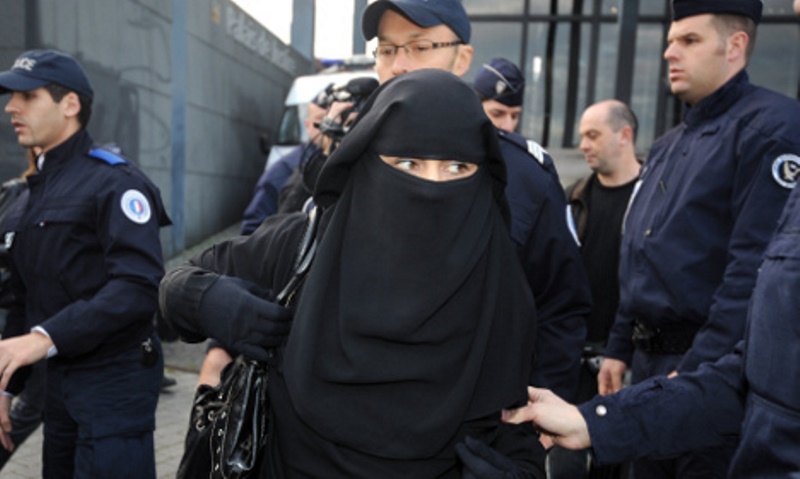PARIS — An Algerian woman’s refusal to shake hands with male officials at a French naturalization ceremony is sufficient grounds for denying her citizenship, France’s top administrative court has ruled.
In its decision — issued on April 11 but reported only this week — the court, known as the Council of State, said that the woman’s refusal “in a place and at a moment that are symbolic, reveals a lack of assimilation.” (New York Times)
Comment:
After criminalising Muslim women in 2011 by making them pay a fine of 150 euros when choosing to wear a face veil in public, France has now come up with its next “special treatment” concerning Muslim woman which recently allowed the refusal of obtaining French citizenship on the grounds of refraining from touching strange men by shaking their hands on a religious basis.
This is the message that the unnamed Muslim woman of Algerian descent has received by the Council of state, a court of last appeals in this kinds of matters. To be able to apply for the French citizenship, this Muslim woman would have already acquired proof of a good command of the French language and would have been married to a French citizen for more than 5 years which are some of the other requirements that need to be met. She was actually in the final stage of her procedure, only steps away from receiving her certificate which is rewarded at the end of the reception ceremony which she was attending. She proceeded to politely refrain from shaking the hand of two male officials and explained that she did so on religious convictions.
Astonishingly, she was then refused from receiving her French citizenship based on yet another requirement which can be invoked under the civil code to refuse citizenship which is “not being assimilated into the French community.” Her religious conviction which made her to refrain from shaking hands with an unknown man was seen as disrespectful towards French values”. Or as the then-prime minister, Bernard Cazeneuve, put it “an act which meant she could not be considered as integrated into the French community”. Still hopeful the Algerian woman proceeded to appeal this decision calling it “an abuse of power” only to see the first verdict upheld.
What are we to understand under this vague term of “Not being assimilated into the French community” ? How does the choice to not shake the hands of strange men prevent them from living their lives in France? Will it prevent women from receiving an education or attain a certificate to learn the French language? Will it prevent women from learning to drive or play an active role at the schools of their children. Will it prevent women being able to help out at the local mosques in the same French societies or become the best croissant baker in Paris?
The above questions and answers are of course rhetorical as it is plain to see that these women will only be prevented from doing any such activities if they are forced to look and behave a certain way in order for them to be accepted in French society.
France has already banned the face veil, attempted to ban the Burqini (modest swimwear), demanded that a halal supermarket sell pork and wine and now want to intervene in a woman’s choice to not touch the hand of a strange man. All these restrictions are just another attempt by the French state to inforce political and social ideas on to the mass and by doing so force Muslims to give up their Islamic beliefs in order to make way for secular liberal values. It is especially Muslims who are doing their best to hold on to their religious convictions and who for this reason will continue to be at the receiving end of this secular liberal extremism.
So for Muslim living in the West, whether this is in France or any other Western society, the pressure for them to abandon their Islamic values in order to assimilate in to “French” society is an ongoing process which will only intensify. Islamic symbols and rituals will continue to be marginalized and, in some cases, even criminalized. Portraying those who still wish to hold on to their belief as unwilling to participate in society and for this reason in need of being punished for this behaviour.
Therefore, the Muslim community, especially now, needs to hold on to their Islamic identity and to be supportive of those who are willing to take such a brave stand by holding on to their beliefs even if this means losing one’s right to become a French citizen.
وَلَا تَهِنُوا وَلَا تَحْزَنُوا وَأَنْتُمُ الْأَعْلَوْنَ إِنْ كُنْتُمْ مُؤْمِنِينَ
“Do not give up and do not be downhearted. You shall be uppermost if you are believers.” [Aal-i-Imraan: 139]
Yasmin Malik
Member of the Central Media Office of Hizb Ut Tahrir

